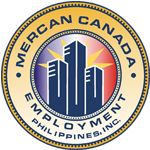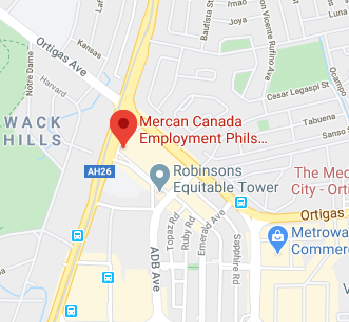Interim measure for citizenship applications affected by the first-generation limit to citizenship by descent
On this page
- Overview
- Eligibility
- Limits to citizenship by descent under the Citizenship Act
- Exceptions to the first-generation limit
- Pathways to citizenship for persons not eligible for citizenship by descent
- Substantial connection assessment
- Urgent processing
- Offering consideration for a discretionary grant of citizenship under subsection 5(4) of the Citizenship Act
- Applicants who do not respond or do not wish to be considered for a discretionary grant of citizenship
Overview
The first-generation limit (FGL) to citizenship by descent requirements of the Citizenship Act are changing. The FGL generally limits citizenship by descent to persons who are born or adopted to a Canadian parent abroad in the first generation (with some exceptions for children born outside Canada to Crown servants). Until the changes take effect, the current FGL rules remain in force.
On December 19, 2023, the Ontario Superior Court of Justice found that paragraphs 3(3)(a) and 3(3)(b) of the Citizenship Act are unconstitutional. The Court’s declaration was suspended until further notice. The Court’s decision did not address all cohorts of individuals impacted by the FGL including:
- those adopted abroad by Canadian citizens
- individuals who ceased to be citizens under the former section 8 of the Citizenship Act
- a subset of individuals born before January 1, 1947 or April 1, 1949 (Newfoundland and Labrador) and on those dates only 1 of the parents was a citizen described in paragraphs 3(1)(o),(p),(q) or (r)
- certain individuals whose parents are deceased
Until the changes take effect, the current rules remain in force for all impacted applicants and this procedure is to be followed.
The following interim measure has been implemented to address proof of citizenship and adoption applications that are impacted by the FGL.
Scenario 1: The applicant submits a citizenship application that is subject to the FGL and was born or adopted before December 19, 2023.
Scenario 2: The applicant submits a citizenship application that is subject to the FGL and was born or adopted on or after December 19, 2023.
Scenario 3: The applicant has submitted or is submitting a citizenship application that is subject to the FGL and requests urgent processing based on the urgent processing criteria.
The Case Processing Centre – Sydney (CPC-S) at IRCC will apply the following triage criteria:
- 1. For applicants born before December 19, 2023, the applicant will be sent a letter providing the option of being considered for a discretionary grant of citizenship under subsection 5(4). Once the subsection 5(4) application is created it will be referred to the senior citizenship decision-maker for regular processing as outlined in this procedure.
- 2. For applicants born on or after December 19, 2023, the applicant will be sent a letter providing the option of being considered for a discretionary grant of citizenship under subsection 5(4) and requesting submissions on their Canadian parent’s (or parent who would be entitled to Canadian citizenship if not for the FGL) substantial connection to Canada. Substantial connection is defined as the parent having accrued 1,095 days (cumulative) of physical presence in Canada prior to the birth or adoption of their child (the applicant). The subsection 5(4) application will be created and if substantial connection is established, the application will be referred to the senior citizenship decision-maker for priority processing. Where substantial connection is not established, the application will be created and referred to the senior citizenship decision-maker for regular processing as outlined in this procedure.
- 3. For applicants with urgent processing needs, regardless of date of birth, may request and may be eligible for urgent processing priority as determined by CPC-S.
Once the proof of citizenship or adoption application is received at CPC-S, it will be processed in the order of receipt. CPC-S will provide the applicant with a letter that includes all of the following:
- a notice that the FGL is still in force
- the option to request a discretionary grant of citizenship under subsection 5(4) of the Citizenship Act and the relevant instructions to request the grant
- the option to demonstrate if at least 1 of their parents who is a Canadian citizen (or would be entitled to Canadian citizenship if not for the FGL) has a substantial connection to Canada, if the applicant was born on or after December 19, 2023
- This would allow the applicant to benefit from priority processing
In the letter, CPC-S will advise the applicant to provide additional documentation to support consideration for a discretionary grant of citizenship under subsection 5(4) and the right of citizenship fee, if applicable, after which the CPC-S office will create the application for subsection 5(4) consideration, triage the application accordingly and will refer the application to the Minister or a delegated decision-maker who will assess the subsection 5(4) application.
Assessment of the subsection 5(4) application
- If the subsection 5(4) application is approved, the applicant will be granted citizenship
- If the subsection 5(4) application is not approved, the applicant will not be granted citizenship
- If the applicant does not respond to the initial offer to be considered under subsection 5(4) or if the applicant refuses the offer, a second letter will be sent
- If the applicant does not respond or refuses the second offer a decision will be made by CPC-S on their proof of citizenship or adoption application in accordance with the Citizenship Act
Eligibility
Limits to citizenship by descent under the Citizenship Act
Since April 17, 2009, Canadian citizenship by birth outside Canada to a Canadian parent (citizenship by descent) is limited to the first generation.
The FGL means that, in general, persons who were not already Canadian citizens immediately before April 17, 2009, and who were born outside Canada to a Canadian parent or adopted by a Canadian parent are not Canadian or have access to the direct grant of citizenship for adopted persons under section 5.1 of the Citizenship Act if 1 of the following is true:
- their Canadian parent was also born outside Canada to a Canadian parent (the person is therefore the second or subsequent generation born outside Canada)
- their Canadian parent was granted citizenship under section 5.1, the adoption provisions of the Citizenship Act (the person is therefore the second generation born outside Canada)
The FGL did not take Canadian citizenship away from any person who was a Canadian citizen immediately before the rules came into effect on April 17, 2009.
Exceptions to the first-generation limit
The FGL does not apply to a person born outside Canada in the second or subsequent generation if 1 of the following is true:
- at the time of the person’s birth or adoption, their Canadian parent was employed outside Canada in or with the Canadian Armed Forces, the federal public administration or the public service of a province or territory (a Crown servant), other than as a locally engaged person
- at the time of their Canadian parent’s birth or adoption, the person’s Canadian grandparent was employed outside Canada in or with the Canadian Armed Forces, the federal public administration or the public service of a province or territory (a Crown servant), other than as a locally engaged person
Clients who think the above exception may apply to them or their children can contact IRCC for further information via the web form on the IRCC website.
Pathways to citizenship for persons not eligible for citizenship by descent
Persons who are not eligible for citizenship by descent or a direct citizenship grant for adopted persons under the Citizenship Act may use other pathways to citizenship:
- They may be eligible to be sponsored as permanent residents under the Immigration and Refugee Protection Act
- An application for a grant of citizenship under subsection 5(2) for a minor or a grant of citizenship under subsection 5(1) of the Citizenship Act may be submitted as soon as the person becomes eligible
- If stateless, they may be eligible for a grant of citizenship for stateless persons under subsection 5(5) of the Citizenship Act, and may proceed with completing the application: Applications for Grant of Citizenship for Stateless persons Born to a Canadian Parent – Subsection 5(5)
- Additionally, for use in exceptional cases, the Citizenship Act provides the Minister with discretion to grant citizenship under subsection 5(4) to alleviate cases of statelessness
- More information can be found on Citizenship grants: Statelessness
Substantial connection assessment
Citizenship applicants subject to the first-generation limit who are born or adopted on or after December 19, 2023, and who wish to be considered for a discretionary grant will be asked to demonstrate if at least 1 of their parents who is a Canadian citizen (or would be entitled to Canadian citizenship if not for the FGL) has a substantial connection to Canada. Substantial connection is defined as the parent having accrued 1,095 days (cumulative) of physical presence in Canada prior to the birth or adoption of their child (the applicant).
The substantial connection assessment will be used for the sole purpose of determining priority processing being offered to applicants whose Canadian parent (or parent who would be entitled to Canadian citizenship if not for the FGL) is substantially connected to Canada as outlined in these instructions.
Individuals born on or after December 19, 2023, whose Canadian parent (or parent who would be entitled to Canadian citizenship if not for the FGL) does not meet the substantial connection assessment will be offered consideration under subsection 5(4) but will not be eligible for priority processing.
Those who do not respond to the letter requesting information relating to their parent’s substantial connection will be offered consideration under subsection 5(4) but will not be eligible for priority processing.
Only those who do not respond to or refuse the offer to be considered under subsection 5(4) will have their proof of citizenship or adoption application decided in accordance with the Citizenship Act.
Urgent processing
IRCC will continue to process proof of citizenship applications urgently in special cases or situations. Applications for citizenship for persons adopted by Canadian citizens will continue to be processed on a priority basis.
IRCC will examine requests for urgent processing on a case-by-case basis to ensure the requests qualify for urgent processing. If the application does not qualify for urgent processing, the applicant will be advised in writing, and the application will remain in regular processing. Applicants may re-apply for urgent processing should their circumstances change. Urgent processing is not guaranteed.
Offering consideration for a discretionary grant of citizenship under subsection 5(4) of the Citizenship Act
Once the subsection 5(4) application is received by the senior citizenship decision-maker, applications will be treated in order of priority followed by those with the earliest date received. The senior citizenship decision-maker will assess the subsection 5(4) application and will render a decision or will contact the applicant if further information is required to complete the application for decision.
Information on subsection 5(4) of the Citizenship Act can be found at Citizenship: Ministerial discretion to grant citizenship in special cases.
Applicants who do not respond or do not wish to be considered for consideration for a discretionary grant of citizenship
If an applicant elects not to request consideration under subsection 5(4), or does not respond following the second notice from CPC-S, their Proof of Citizenship or Adoption application will be processed in accordance with the Citizenship Act.




